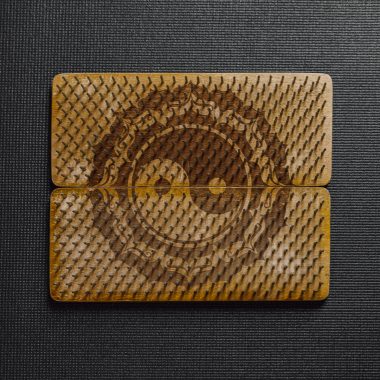inspired by Jessica Stone
Reiki, a form of energy healing originating from Japan, has gained popularity in recent years as people search for alternative methods to improve their overall well-being.
With a focus on channeling universal life force energy, Reiki practitioners aim to help restore balance and promote healing. While anecdotal evidence and personal experiences abound, many wonder about the scientific research supporting this ancient practice.
In this article, we will explore the research and evidence behind Reiki, its potential benefits, and why you might consider trying it for yourself.
-
What is Reiki?
Reiki is a form of biofield therapy that involves the gentle placement of hands on or slightly above the body to channel healing energy.
This practice is based on the belief that a universal life force energy flows through all living beings, and when this energy is disrupted or imbalanced, it can lead to physical or emotional discomfort. By channeling this energy, Reiki practitioners aim to restore balance and harmony, promoting relaxation, stress relief, and overall well-being.
Переглянути цей допис в Instagram
-
The Research on Reiki
While Reiki has been practiced for centuries, scientific research into its effectiveness is still relatively limited. However, recent studies have begun to explore the potential benefits of Reiki, and the results have been promising:
- A 2015 systematic review found that Reiki may have a positive effect on pain and anxiety in cancer patients, as well as on depression, stress, and overall quality of life.
- In 2018, a study published in the Journal of Alternative and Complementary Medicine found that Reiki was effective in reducing pain, anxiety, and depression in hospital patients.
- Another study published in 2019 in the journal Pain Management Nursing found that Reiki may be an effective complementary therapy for managing chronic pain.
- Benefits of Reiki
Reiki has been reported to provide a range of benefits, including:
a) Stress Relief and Relaxation
Reiki promotes a deep sense of relaxation, helping to reduce stress and anxiety. This is particularly important in today’s fast-paced world, where stress is a significant contributor to various health issues.
b) Improved Mental Health
Reiki may also help improve mental health by reducing symptoms of depression and anxiety, as demonstrated by several studies mentioned earlier.
c) Chronic Pain Management
For those suffering from chronic pain, Reiki may offer a complementary approach to managing symptoms, in addition to traditional pain management techniques.
d) Enhanced Overall Well-being
Reiki’s holistic approach to healing addresses not only physical symptoms but also emotional and spiritual aspects, promoting overall well-being and balance.
-
Why You Should Consider Trying Reiki
If you’re looking for a gentle, non-invasive approach to improving your overall health and well-being, Reiki may be worth considering. As a complementary therapy, it can be used alongside conventional treatments, offering additional support in managing stress, mental health, and chronic pain.
Furthermore, Reiki is suitable for people of all ages and backgrounds, making it an accessible option for those seeking alternative healing methods.
-
Finding a Qualified Reiki Practitioner
To experience the potential benefits of Reiki, it’s essential to find a qualified and experienced practitioner. Look for practitioners who have completed a reputable Reiki training program and have received attunements from a Reiki Master.
Word-of-mouth recommendations, online reviews, and local wellness centers can also help you find a qualified practitioner in your area.
Переглянути цей допис в Instagram
With its focus on restoring balance and promoting well-being, Reiki may offer a unique approach to enhancing your overall quality of life. As research continues to grow, we can look forward to further understanding the science behind this ancient healing practice and its potential benefits for our health and well-being.








